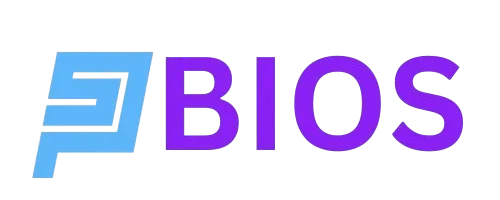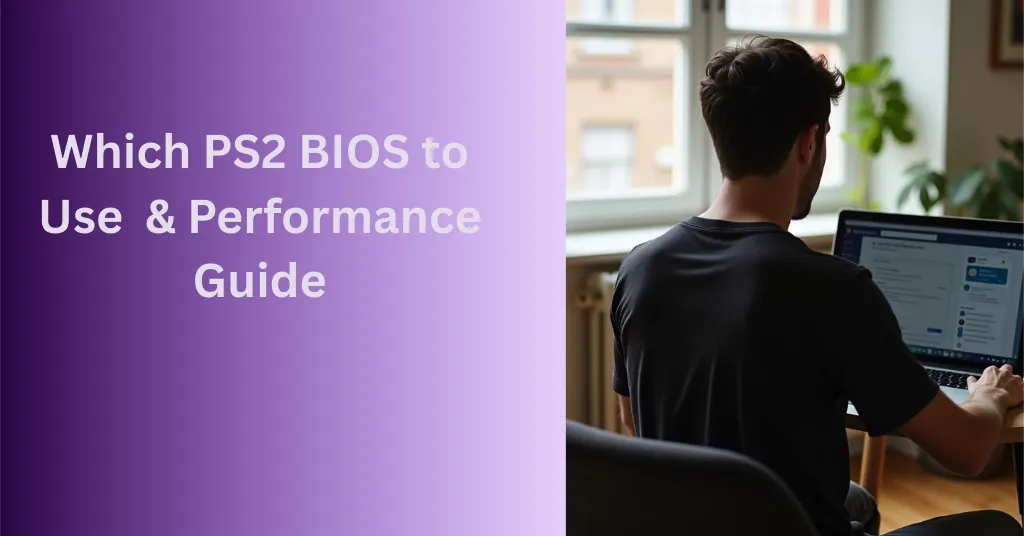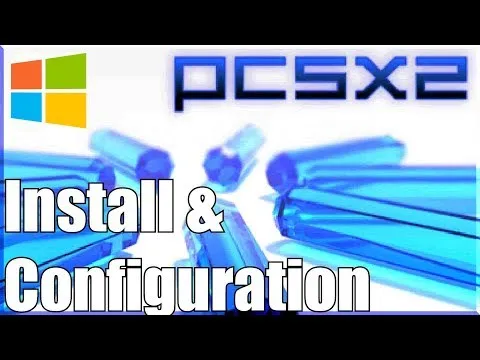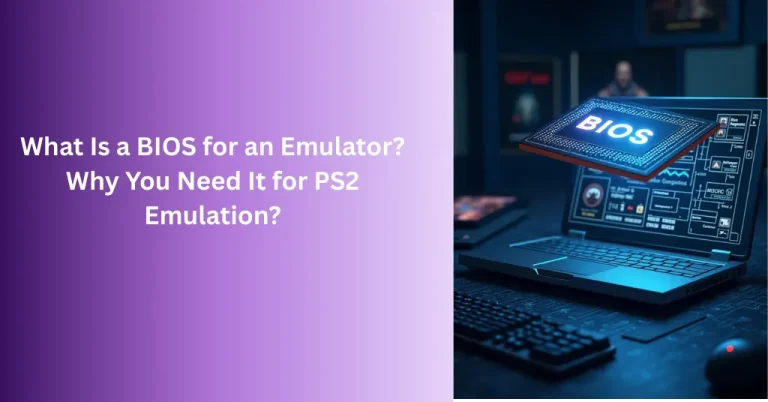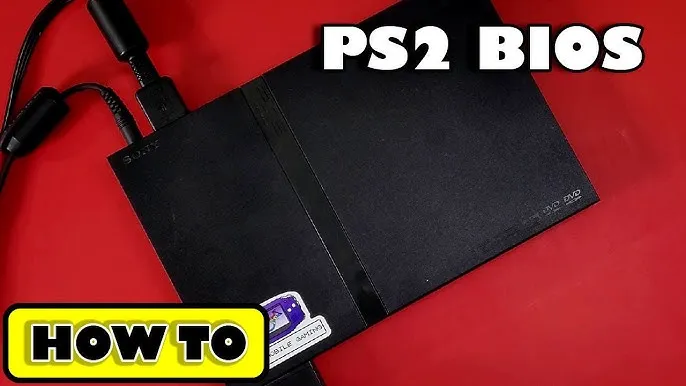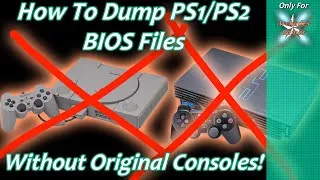Which PS2 BIOS to Use: A Comprehensive Compatibility Guide
You’ve most definitely heard how important the BIOS file is and that not just any version will work if you intend to emulate the PlayStation 2. When it comes to emulator stability, game compatibility and performance, the correct BIOS may make all the difference. The million-dollar question, however, is which PS2 BIOS to use, given the wide array of BIOS versions available whenever you search.
Whether you’re running PCSX2 on PC or AetherSX2 on Android, this tutorial explains everything you need to know, from BIOS types and emulator compatibility to performance advice, so you can pick the best PS2 BIOS for your system with confidence. So, keep scrolling.
What Exactly is the PS2 BIOS & Why is it Really Important?
I am sure most of you must already know about the firmware that was initially installed in the PlayStation 2 console; that is known as the BIOS (Basic Input/Output System). In order to boot up, verify hardware, apply regional settings, and start the game disc, the console utilizes it. Your PS2 emulator (such as PCSX2 or AetherSX2) just cannot work without it.
The BIOS functions as the console’s brain during emulation. It makes it possible to accurately replicate:
- Sequences of boot
- Management of memory cards
- Locking a region
- Disc verification
- System-level operations
People are therefore often looking for the version that offers the smoothest experience throughout their emulator settings and games when they question, “Which PS2 BIOS should I use?”
PS2 BIOS Versions – Why Are There Multiple Versions?
Over the years, Sony published many PS2 BIOS versions according to hardware updates and geographical locations. The system behavior, game compatibility, and performance of these BIOS files differ somewhat.
The primary BIOS areas consist of:
- NTSC-U (Canada/USA): This one is typical of games in North America.
- NTSC-J (Japan/Asia): This one is necessary for Japanese releases.
- PAL (Australia/Europe): This one supports European titles with varying video standards.
Furthermore, small firmware updates were released when BIOS versions progressed with each successive console model, like from SCPH-10000 to SCPH-90000.
Which Factors to Consider When Selecting the Best PS2 BIOS?
Here are some considerations to keep in mind, especially if you’re unsure which PS2 BIOS is ideal for your configuration:
- Game Region
Geographical restrictions on gameplay are imposed by the PlayStation 2 platform. This implies that:
- A Japanese game won’t function correctly on a US BIOS.
- Using a PAL game with an NTSC BIOS might cause issues.
For the best reliable experience, align the BIOS region with the area of your game.
- Emulator Compatibility
If there’s one emulator that is incredibly flexible and works with nearly any BIOS version, it is PCSX2. However, it is typically advised to utilize BIOS versions from SCPH-39004 (PAL) or SCPH-70012 (USA) ahead for the greatest compatibility and fewest bugs.
All official BIOS files are supported by AetherSX2, nevertheless, for mobile efficiency, it works best with more recent BIOS versions, such as v1.90 and higher.
- Game Compatibility
While more recent and demanding games require later versions, such as v2.00, for smoother performance and fewer issues, some older games run better on previous BIOS versions, say for example, on v1.60.
- System Prerequisites
It is very much possible that later BIOS versions, i.e. v1.90–v2.00, will need a little more CPU power. For balanced performance, you might be better off utilizing a mid-range BIOS, such as v1.70 or v1.80, if you’re using a cheaper computer or phone.
Popular PS2 BIOS Versions: An Overview of Each with Pros & Cons
Knowing the distinctions between the most popular PS2 BIOS versions is helpful before you decide on which one you’re going to use. Each has its own set of strengths and weaknesses, along with optimal applications, according to your setup and games. A quick summary is provided below to help you make an informed choice. We’ll go over each version’s features, emulation capabilities, and which PS2 BIOS will work most effectively with your setup.
BIOS v1.60: The Early Booter
One of the earliest firmware updates for the PlayStation 2 was BIOS v1.60. It supported the first generation of PS2 games and hardware and was built for the launch models. Even though it is now regarded as obsolete, it is nevertheless useful for simulating older games and low-end configurations.
Pros:
- Strong backing for PS2 games from the beginning: Works well with games from the launch era that might not function as well on more recent BIOS versions.
- Reliable and lightweight: It is perfect for older PCs or devices with low processing power because it uses fewer resources.
- Stable for simple emulation requirements: performs reliably with typical emulator settings for older PS2 games.
Cons:
- Insufficient compatibility with more recent games: A lot of PS2 games from the late generation will either not start at all or have issues.
- Lack modern optimizations: Does not profit from the speed boosts, bug fixes, or system enhancements included in more recent BIOS versions.
BIOS v1.70: The Balanced Middle Ground
BIOS v1.70, which was released as a member of the SCPH-39000 console family, provided an improvement in overall stability and compatibility. Even now, it remains one of the most often used BIOS files since it achieved a good compromise between performance and wide game compatibility.
Pros:
- Greater compatibility: Offers better stability for PS2 titles from the early and mid-eras.
- Reduced glitches and bugs: fixed typical emulation issues from previous BIOS revisions.
- Ideal for the majority of users: Perfect for light-duty emulation, particularly on inexpensive hardware.
Cons:
- Not ideal for expensive games: A newer BIOS may be more compatible with some of the most demanding PS2 games.
- Absence of more recent system improvements: It does not fully exploit the capabilities of the contemporary emulator, in contrast to versions such as v1.90 or v2.00.
BIOS v1.90: The Dependable All-Rounder
Sony made major firmware upgrades with BIOS v1.90, which allowed for greater compatibility with newer titles while maintaining support for many older ones. For consumers looking for reliable, high-performance emulation that doesn’t strain system resources, this version is frequently suggested.
Pros:
- High compatibility range: Provides good performance for the majority of PS2 titles, including early, mid, and late releases.
- Trouble-free gameplay: Playing games that are challenging on earlier BIOS versions is made smoother by reducing lag, crashes, and graphics problems.
- More reliable with contemporary emulators: Particularly well-suited for AetherSX2 and PCSX2.
Cons:
- Skipped minor legacy features: Some older or uncommon games may not operate 100% appropriately.
- Resource-intensive: Needs a little more processing power from your CPU or mobile device than previous iterations.
BIOS v2.00: The Top-Tier Version
The most recent improvements and complete support for the most intricate and resource-demanding PS2 titles are included in BIOS v2.00, the last significant BIOS update for PS2 consoles. For those having robust systems or those seeking the utmost emulation accuracy, it’s the preferred option.
Pros:
- Outstanding overall performance: provides the greatest experience for graphically demanding games and expansive open worlds.
- Improved system stability: Better save/load handling, fewer glitches, and seamless transitions.
- 100% compatibility: Almost the whole PS2 library is supported.
Cons:
- Overkill in early or basic games: Not every title needs its sophisticated features; truth be told, some may perform strangely.
- Stronger hardware is needed: It works well on high-end Android smartphones with good specifications or contemporary PCs.
BIOS Versions Comparison (Quick Table)
| BIOS Version | Ideal For | Game Era | System Load | Notes |
| v1.60 | Retro builds, low-end PCs | Early PS2 games | Low | Great for SCPH-10000–30000 |
| v1.70 | All-round use | Early–Mid | Medium | Stable and widely used |
| v1.90 | Modern gaming rigs | Mid–Late | Medium-high | Most stable for newer titles |
| v2.00 | High-end PCs & phones | All games | High | Best PS2 BIOS for performance |
Which PS2 BIOS is Best to Use?
Although there isn’t a single solution that works for everyone, the following handbook will prove helpful depending on your setup:
- BIOS v1.90 or v2.00 (USA or PAL) is the best PS2 BIOS for PCSX2.
- For seamless mobile performance, the best PS2 BIOS for AetherSX2 is v1.90+.
- Playing imports from Japan? Use the SCPH-10000 or SCPH-50000 J NTSC-J BIOS.
- Looking for wide compatibility? Select SCPH-70012 (v2.00 USA) or SCPH-39004 (v1.70 PAL).
Download a complete multi-region BIOS bundle, try out each version, and determine which one is ideal for your preferred games if you’re still not sure which PS2 BIOS to use.
A Note Regarding Legal Use
It is legally required to own an actual PS2 console to access its BIOS. You may extract your own file from the device using programs like uLaunchELF or BIOS dumper. Instead of encouraging piracy, we at ThePSBios.com advocate for ethical and safe emulation for accessibility and preservation.
Conclusion: Selecting the Best PS2 BIOS Wrap-up
Matching your emulator and game requirements is more important when selecting the finest PS2 BIOS than looking for the “latest version.” BIOS versions 1.90 or 2.00 are good starting points for casual gamers. V1.60 or v1.70 will work nicely if you’re interested in old games or using less expensive hardware.
In any case, using the correct BIOS guarantees that your emulator operates at peak performance, with fewer errors, faster performance, and complete compatibility.
Need assistance making a decision or have questions? To obtain a complete, pristine PS2 BIOS pack for PCSX2 or AetherSX2, leave a comment or go to our download page.
